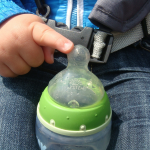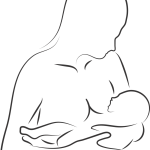The American Medical Association claims the body mass index (BMI) is "white supremacist" medicine, and the CDC says men can breastfeed babies. The public health establishment seems to have lost its grip on reality. How did this happen?
breastfeeding
Ideology, not medical reality, has infected much of modern parenting. The most compelling pediatric articles -- centered around misguided activism that still persists -- focused on infant feeding, vaccines and mom-shaming.
With the release of the CDC's 2018 breastfeeding scorecard, it is time to add common sense into these failed policies that actually supports women and families.
When ideology not medical reasoning guides infant feeding policy, nobody wins.
The negative impact of (1) "at-all-costs" breastfeeding campaigns, (2) the political zeal of "lactivism" and (3) societal pressures have done a proven disservice to women and families. So much so that formal health policy had to be changed.
Though well-intentioned, "at all costs" breastfeeding messages are routinely misguided. And even intellectually dishonest.
In the first of a series for the FOX podcast network, the Council's medical director clarifies misperceptions surrounding infant nutrition. This includes new trends, like importing specific organic formulas from overseas for being so-called "more pure" or "natural."
When it comes to infant feeding, recent survey data from the Centers for Disease Control does more to add to the guideline burden than benefit a baby – let alone the parent.
The Boogyman was a creation used to control children's behavior. That said, it has no role in the debate over public health policy.
"Perfect" infant feeding should not be the enemy of the good in messaging during disasters like hurricane Harvey.
After the World Health Organization and United Nations Children's Fund doubled down – urging breastfeeding at all costs, despite no country meeting their standards – we need to ask: Has the U.K.'s latest reversal of the normal birth campaign taught us anything? Value-laden ideology should not drive health policy.
When not one country in the world meets the “breastfeeding standards” set forth by the World Health Organization (WHO) and the United Nations Children’s Fund (UNICEF), it might be time to question their value. Are they attainable — more importantly, should they be?











